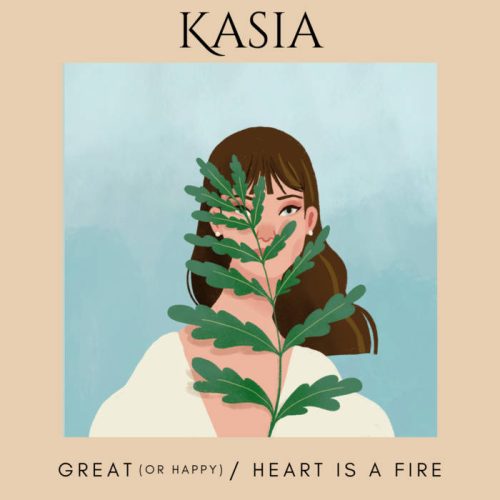I’ve lived in Nashville for six years now.
I’ve never known a place like it. Music is built into the architecture, growing in the landscape, vibrating in the air. It’s a magical place where your favorite artists are your friends and birthday parties are jam sessions.
I’m writing this from a coffee shop two blocks from my house, eavesdropping on a conversation between two songwriters talking about their co-writes this week. That doesn’t happen in other places. Music is the water here, and we’ve been in it long enough to forget that most people live on dry land.
But there’s a downside to it, too.
The normalcy of music in Nashville has, without meaning to, taken some of the life from it. Hundreds of people write songs for hundreds of other people to sing; thousands of songs are written a day here, most of them to meet a quota or earn a paycheck. Music is mostly a commodity now. And like all commodities, it feels largely impersonal.
That’s why I’m glad there’s people like KASIA in the world.
KASIA writes songs that are full of life. And I don’t mean that they’re merely fun or energetic, soulful or smooth, though they certainly are. I mean that they’re full of the stuff of real life.
Take “Great (or Happy)” for example.
At first impression, this song breathes with vibrance. It starts with a bright horn section, a drum fill, and KASIA’s light vocals. One can tell her voice has more to give, and that she’ll give it later on. But for the first verse, it’s all smooth sailing over calm, dreamy production laced with 7 chords.
Then the lyrics start to come into focus.
Papa, lifted up a home
Gave it walls and doors for us to run around
Mama spun it into gold
Built a warming fire to feed our growing bones
This isn’t just another chill jazz song to fill the 8th slot of a coffee shop playlist. This is a deeply personal song about KASIA’s familial upbringing, sung with the kind of sincerity that demands to be heard, and I mean really heard.
And oh, how easy it all seemed
Now that we can fly, we forget how much they dreamed
And I know, and I know, and I know
They didn’t have a map, but they had a plan
Here, KASIA shows her cards, albeit subtly. She hints at being a daughter in an immigrant family, with a childhood now colored a fond sepia. Her parents loved self-sacrificially, taking the hard, untrod road so that their children wouldn’t have to do the same.
But every rose has its thorns, and every picturesque childhood its unintentional ill bearings on the present.
Am I supposed to be great, or happy?
Tell me what’s the right way to go
Am I supposed to be great, or happy?
Or do you think, don’t you think, think that I could be both?
Like many children of immigrant parents, KASIA vulnerably admits to a crisis of identity known all too well. Loving, hardworking parents have, by their love and hard work, set a standard which, for the rest of her life, she will be trying to meet. Is she supposed to be as sacrificial as they were? Must she forsake the present for the future, immediate joy for long-term hope? Is she supposed to be great, or happy?
But, as in life, in the end, the tension isn’t simply released. Instead, she wisely learns to live with it.
What I decide doesn’t need a compromise
And so, the song ends with one final chorus delivered hardly above a whisper, and anybody listening closely this far can feel the change in delivery. The lyrics are the same, but they feel different. The trouble isn’t gone, but the angst is.
With that, KASIA gives us a song born out of real life, real emotion, real tension. And in a world (or in my case, a city) that turns the real to fake for the sake of the ease of commodification… well, we’ve been needing a song like that.







